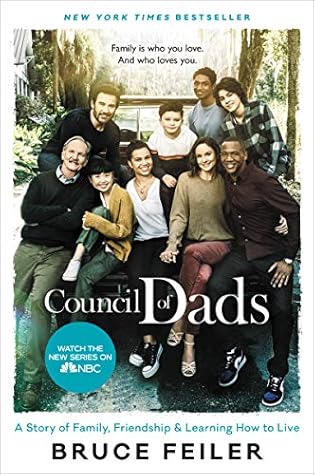Kindle Notes & Highlights
“A traveler is someone who can let go of what is familiar and in a very conscious way seek out what is different. It is someone willing to slow down enough, get off the pressured, achievement track, and seize the opportunity. It is someone willing to break the routines of home: what you eat, when you sleep, how you wash.”
No matter where you are, you should always be true to yourself. No matter where you go, you should always pack your flip-flops.
There’s an African proverb that the man who asks questions is never lost.
So I would tell the girls to live their questions. Throw themselves passionately into the quest for new perspectives, just like their father, who would go anywhere in search of answers to his questions.”
“Because the people who live the answers have a lot more safety, a lot more security, and a lot more stability.” “And the people who live the questions are . . . BOX.” “Discoverers.”
“My favorite quote comes from the Roman general Epaminondas,” Joshua said. “In A.D. 70, he was rallying his troops for battle one day, when he sat on a chair and it collapsed underneath him. His men freaked out. It was a horrible omen. But Epaminondas stood up and announced, ‘This is a sign that we must be up and doing.’” He went on. “What I love about this line is that it shows the importance of how you see a particular event. You can turn a bad omen into a good one. Also, it endorses the power of an active life. Especially these days when around any corner could be a war, an epidemic, or
...more
Since walking was the first thing I lost when I got sick, I spent much of the months that followed contemplating this most elemental of human acts. Walking upright, or bipedalism, is considered the threshold of being human, the skill that most distinguishes us from our ancestors. It’s also immune to improvement. Ever since humans began walking four million years ago, the act has been essentially unchanged. Every step, my physical therapist observed, is a tragedy waiting to happen: You nearly stumble with one leg, then catch yourself with the other. It’s a constant struggle against gravity,
...more
The other possibility is the more preferable one. I was no longer dissatisfied. Having slowed my pace of life, I was no longer trying to get to a place I wasn’t meant to be. The year I couldn’t hurry, I stopped trying to hurry someplace else. Having finally stopped trying to be someplace else, I was finally happy right where I was. * * *
When assembling this counsel I have been reminded of the great paradox of parenting: Even as we come to feel we can’t live without you, our primary job is to prepare you to live without us. Our task, in a sense, is to make ourselves obsolete. As babies, you arrive entirely dependent; we then spend the coming decades trying to make you independent, so you can thrive on your own, without us.
But you might not have your daddy. And where I would have been in your life, a hole will likely be. You may fill that hole over the years with love or grief, with anger or fear, with lollipops or monsters. All of those are okay. But whatever you fill the emptiness with, be gentle on yourself. This situation is not your fault. This plight is not your destiny.
Because if the paradox of being a parent is that we must make ourselves unneeded, the paradox of being a child is that you discover how much you need your parents only after you think you don’t. You spend your whole lives making yourself independent. You go forth on your own. And at exactly the moment you stop listening to us, you finally hear what we’ve been saying all along.


